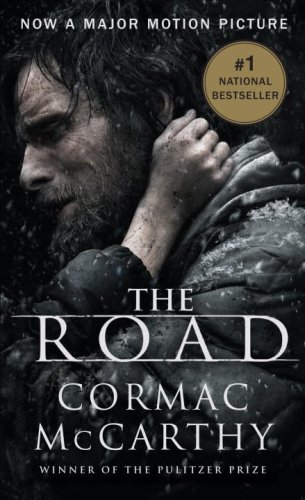All Nonfiction
- Bullying
- Books
- Academic
- Author Interviews
- Celebrity interviews
- College Articles
- College Essays
- Educator of the Year
- Heroes
- Interviews
- Memoir
- Personal Experience
- Sports
- Travel & Culture
All Opinions
- Bullying
- Current Events / Politics
- Discrimination
- Drugs / Alcohol / Smoking
- Entertainment / Celebrities
- Environment
- Love / Relationships
- Movies / Music / TV
- Pop Culture / Trends
- School / College
- Social Issues / Civics
- Spirituality / Religion
- Sports / Hobbies
All Hot Topics
- Bullying
- Community Service
- Environment
- Health
- Letters to the Editor
- Pride & Prejudice
- What Matters
- Back
Summer Guide
- Program Links
- Program Reviews
- Back
College Guide
- College Links
- College Reviews
- College Essays
- College Articles
- Back
The Road by Cormac McCarthy
The Road: The end or not?
Since the beginning of time, man has prophesized and wondered about the end of the world. From the age of Jesus to the most current date of 2012, plenty of people have speculated as to what the apocalypse might bring. However, few of these speculations apply as much detail or have such a distinct vision as is displayed in Cormac McCarthy’s The Road.
The novel at first may seem like nothing special; a man and a boy doomed to perish while wandering aimlessly around post-apocalyptic America. However, this seemingly mundane plotline evolves into something much more than simple actions. McCarthy ingeniously shifts the focus of the novel from the dry plot to the characters themselves. The book’s setting and character’s actions serve only to define the characters in the novel, and develop them as rounded people with a past and memories that cannot be forgotten. The fact that the characters are so well developed may be unbelievable to the well-versed McCarthy reader once the reader sees the formatting of the book’s paragraphs. In a gigantic departure from his writing style in his previous best-selling novels “All the Pretty Horses” and “No Country for Old Men”, which were descriptive and verbose almost to the point of making the reader nauseous, McCarthy sparsely sprinkles The Road with words, and long paragraphs are few and far between. Indeed many conversations in the novel consist of one-liners and the word “okay” (McCarthy 135) repeated over and over.
McCarthy’s writing style in the road leaves much to be imagined, yet that may very well be a part of his genius in this Pulitzer Prize-winning book. After completing the novel I found myself stuck in the world I had read about, wondering if I could “wash a dead man’s brains out of [my child’s] hair” (McCarthy 74) or scavenge for food in what used to be my childhood home (McCarthy 25). The reader is left wondering what McCarthy meant for him or her to take away from reading The Road. McCarthy must have meant his book to keep the reader thinking and engaged; there was no overall theme or idea that the reader should have taken away from the novel. The point is only for the reader to engage in the story and ponder for themselves the meaning of the terrible events that he or she read about.
The majority of the novel was thought provoking and interesting, but the ending leaves much to be desired. It was quick and painless, but did not hold the depressing and gruesome deaths that one might expect. Instead it seemed predictable and too cliché to be a satisfactory end to the story. It was short and abrupt, leaving the reader hanging and in want of more tales to read; perhaps following the boy as he survives with his father gone, not a tale about how he was taken care of with nothing to worry about.
Overall the book was a stimulating read, making the reader consider a situation that most people do not give much thought to: the end of the world. A picture of the apocalypse is typically fiery and hot and contains no dead bodies that evidence the civilization that once was. Yet, McCarthy’s ending has dead bodies lying transfixed in hot, melted asphalt. Despite the bouts of cannibalism and ugly death, the novel was well engineered and deserves all of the praise it has received.
Similar Articles
JOIN THE DISCUSSION
This article has 0 comments.

